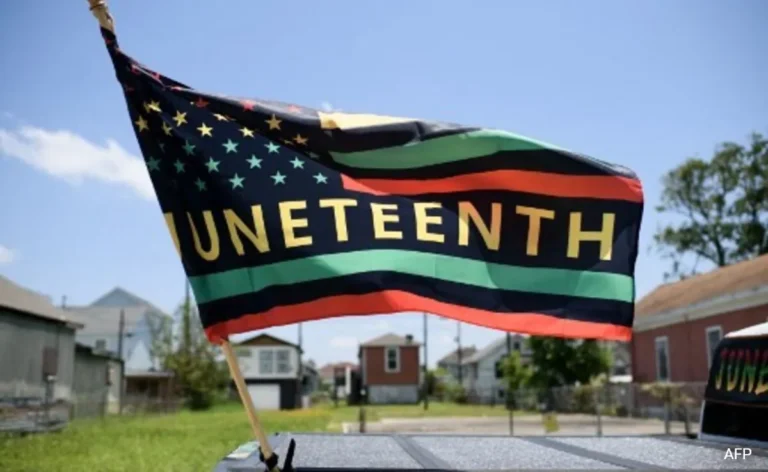What is Juneteenth?
Table Of Contents
Juneteenth, also known as Emancipation Significance of Juneteenth Day commemorates June 19, 1865, when enslaved African Americans in Texas were informed of their freedom. This momentous occasion marks the end of a dark chapter in American history and celebrates new beginnings.
The celebration of Juneteenth has evolved into a symbol of African American liberation and a reminder of the continuous quest for equality. Despite the Emancipation Proclamation being issued in 1863, it took two and a half years for this news to reach the furthest corners of the Confederate South. This delay emphasizes not only the communication challenges of the time but also the resistance to the abolition of slavery in certain regions.
Historical Context of Juneteenth
The origins of Juneteenth trace back to General Gordon Granger’s arrival in Galveston, Texas, where he announced General Order No. 3, proclaiming freedom for all enslaved individuals in the state. This proclamation was significant because Texas, a remote state, had largely ignored the Emancipation Proclamation. Thus, enforcing the order was a landmark moment in the fight for freedom. Understanding the significance of Juneteenth sheds light on why it remains an essential celebration in the United States.
The socio-political climate at the time was fraught with tension. Many slaveholders had moved to Texas to escape the advancing Union Army, bringing their enslaved people with them, believing that Texas would be a haven where they could continue their practices. Granger’s announcement, therefore, was not just a declaration of freedom but a disruption of deeply entrenched socio-economic norms in the region.
Recognition as a National Holiday
Following years of advocacy, Juneteenth was officially recognized as a national holiday in June 2021. This historic moment was celebrated nationwide, acknowledging the day’s significance in American history. The official documentation from the White House provides further details on this achievement.
The journey to national recognition was long and filled with numerous efforts from various activists and community leaders. This federal acknowledgment immortalizes the resilience and courage of those who fought for freedom and highlights the importance of understanding and rectifying historical injustices. Celebrating Juneteenth at a national level brings necessary attention to African American history, fostering greater inclusivity and promoting national reflection on past atrocities.
Modern Celebrations and Traditions
Contemporary Juneteenth celebrations vary but typically include barbecues, parades, music, and educational events. These gatherings honor the traditions established by earlier generations while fostering a sense of community and solidarity. To glimpse various celebrations, check out these Juneteenth activities covered by NPR.
In many communities, Juneteenth events are organized to educate participants on the multifaceted history of African Americans, offering forums for discussion, cultural performances, and historical reenactments. Additionally, the essence of Juneteenth is often captured through family reunions and community gatherings where people come together to reflect on the past, celebrate the present, and hope for the future. The red foods and drinks traditionally served symbolize the bloodshed and resilience of the enslaved people.
Educational Value and Awareness
Juneteenth serves as a crucial educational tool, providing an opportunity to learn about and reflect on slavery, the fight for freedom, and the ongoing struggles for racial equality. Schools and organizations nationwide incorporate Juneteenth teachings into their curriculums to foster a deeper understanding of American history.
This educational aspect is vital in dismantling misconceptions and biases. Juneteenth encourages critical thinking about current systemic inequalities by highlighting the stories of resilience, perseverance, and triumph. Many educational institutions use the holiday as an occasion to discuss broader topics such as civil rights, social justice, and the contributions of African Americans to society.
Impact on Communities
Juneteenth celebrations foster unity and empowerment within communities. They offer a space to honor the ancestors, celebrate progress, and advocate for continued social justice efforts. The communal aspect of Juneteenth underscores the significance of shared history and collective memory in shaping current societal values and actions.
Communities across the nation use Juneteenth as a platform to address contemporary issues such as voter suppression, unequal access to education, and racial violence. Juneteenth events often catalyze grassroots organizing and social change by connecting these modern challenges to the historical struggle for freedom. The holiday’s emphasis on resilience and hope inspires ongoing efforts to achieve equity and justice for all.
The Future of Juneteenth Celebrations
As awareness of Juneteenth grows, so does the recognition of its importance in the collective American consciousness. The future of Juneteenth looks promising, with increased participation and broader acknowledgment of its historical and cultural significance. This evolving recognition ensures that the legacy of Juneteenth will continue to inspire future generations.
Juneteenth has immense potential to become a cornerstone of American cultural heritage. As more people engage with its history and traditions, the holiday can help bridge gaps in understanding and promote a more inclusive narrative of American history. Continued education and advocacy will ensure that Juneteenth remains a day of celebration, reflection, and action toward a more just society.
